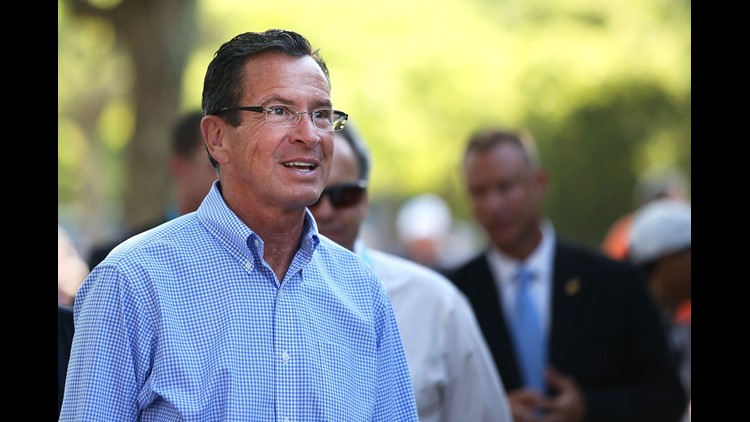HARTFORD — A two-term Connecticut governor who struggled throughout with low popularity, Dannel P. Malloy says he was surprised himself by the victories he pulled off in the 2010 and 2014 elections.
As the Democrat leaves office his approval ratings remain among the lowest of any U.S. governor, although he is viewed as a star nationally in some circles for his work on issues including criminal justice and education reform.
In an interview with The Associated Press, Malloy said he was willing to endure bruising political battles to pursue changes he believed were necessary.
“I could have been popular and ineffective, but I couldn’t in this state be popular and effective,” Malloy said Wednesday.
Democratic businessman Ned Lamont will be sworn in Jan. 9 as the state’s next governor.
Malloy, who did not seek a third term, has been dogged by state budget deficits that led to two controversial tax increases and unpopular program cuts, as well as a slow recovery from the last economic recession. An Oct. 10 Quinnipiac University Poll showed only 23 percent of the state’s registered voters approved of the job he was doing. Malloy said his low approval numbers were due in part also by Republican efforts to mislead the public about his record.
Often characterized at home as prickly and confrontational, Malloy is spoken of in glowing terms by national advocates on issues such as prison reform.
“I don’t know what the cause of his unpopularity is, but it certainly can’t be the work done in criminal justice,” said Pennsylvania Secretary of Correction John Wetzel, a Republican who has worked with Malloy on The Council of State Governments Justice Center. Pennsylvania is now considering replicating one of Connecticut’s prison initiatives that matches younger offenders with older inmates who become mentors, an initiative aimed at reducing prison violence and recidivism.
The 63-year-old Malloy, who previously served 14 years as Stamford’s mayor, ruled out running for elected office again. But he said he will remain involved in political issues that he cares about, such as immigrant rights and education reform, especially as it affects urban schools.
“I think this is a very dangerous time in which we live,” said Malloy, an outspoken critic of Republican President Donald Trump. “I worry about the country and so I’ll speak about the issues that are important to me, if somebody wants to listen. I’m not at all sure there will be an audience.”
At least one group is interested. Democrats for Education Reform, a national political action committee that promotes school choice efforts, recently announced Malloy will sit on its board of directors next year. Like Malloy, the group supports charter schools, an issue of contention within the Democratic Party. Malloy himself received sharp criticism from unionized Connecticut teachers when he proposed a wide-ranging education reform initiative in 2012 that included tenure changes. A toned-down package was ultimately passed.
“We think he raises the profile of education issues we care about,” said Amy Dowell, state director of Democrats for Education Reform. “He has set himself apart.”
Winnie Stachelberg is executive vice president of external affairs at the Center for American Progress, a Washington, D.C.-based policy institute that describes itself as politically progressive. She said Malloy is a “progressive champion” on policies such as paid sick leave, a $10.10 an hour minimum wage, gun control and defending the Affordable Care Act. Stachelberg predicted he will continue to play a role on national issues.
“I can see that Gov. Malloy’s voice and leadership will still be needed on critical issues,” she said.



